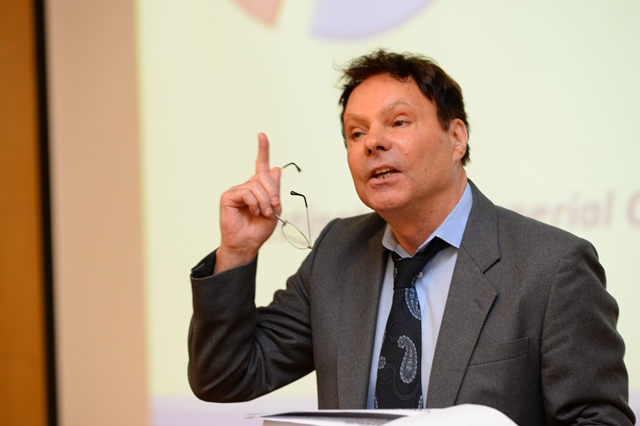
Dr Peter Claiden, Senior Lecturer at the SBC School of Engineering and Computing, was recently awarded a research grant of 27,500 GBP for the development of a detector for use in aviation security, one capable of detecting banned substances such as drugs but particularly those that may be used to create explosives.
The funding body is the Centre for Defence Enterprise (CDE), which is part of the UK Government. Basically, the device offers a cheaper and potentially more effective alternative for positively identifying banned substances, in aircraft cargo. This work follows on from the funded research Dr Claiden did previously in collaboration with Liverpool John Moores University on detectors for nuclear contraband.
According to Dr Claiden’s research findings, chemical signature is a positive means to identify particular substances. A Neutron based method is proposed using information from either the field of scattered neutrons or neutron activation of gamma rays. However, a large amount of data retrieval is required. One way to increase data collection is to have a large area detector (square meters) surrounding the goods. Solid state detectors are available but prohibitively expensive at this size. The proposed detector offers a cheaper alternative with comparable spectral and resolution capabilities.
Dr Peter Claiden is from Britain. He started his teaching career at University of Northumbria UK 25 years ago. Then he furthered his study at the University of Cambridge and in 2002 obtained a Master of Philosophy in Materials Modeling. Later he went to the United Arab Emirates and taught Engineering Design, ICT & Maths for four years. Dr Claiden has extensive experience in academic research and Engineering consultancy in a number of areas, including the nuclear industry.
Dr Claiden said: “I’m extremely glad that my research has been recognised by CDE and the grant is a huge encouragement. It is worth mentioning that four of my students are also working on this as their final year projects. I hope that this experience will be beneficial to them as well for their future endeavor in academic research.”





